
Environmental Processes-An International Journal
Scope & Guideline
Bridging Science and Sustainability for Global Impact
Introduction
Aims and Scopes
- Environmental Remediation and Waste Management:
Research focusing on innovative methods for treating and managing waste, including studies on the effectiveness of various materials and technologies for pollutant removal and resource recovery. - Water Quality and Hydrology:
Investigations into the dynamics of water systems, including assessments of water quality, hydrological modeling, and the impacts of anthropogenic activities on freshwater resources. - Ecological and Environmental Assessments:
Studies that evaluate the ecological status of natural resources, including soil and water systems, to understand the impacts of pollution and climate change on biodiversity and ecosystem services. - Sustainable Practices and Resource Recovery:
Research promoting sustainability through the development of eco-friendly practices, resource recovery strategies, and the exploration of renewable materials and processes. - Climate Change Impacts and Adaptation Strategies:
Examinations of how climate change affects environmental processes and ecosystems, along with proposed adaptation strategies to mitigate these impacts.
Trending and Emerging
- Advanced Materials for Environmental Applications:
There is an increasing focus on the development and application of novel materials, such as nanomaterials and bio-based adsorbents, for environmental remediation, highlighting innovations in material science. - Integration of Technology and AI in Environmental Monitoring:
Papers utilizing artificial intelligence and machine learning for environmental modeling and monitoring are on the rise, showcasing the potential of technology to enhance data analysis and decision-making processes. - Climate Change Mitigation and Adaptation Research:
Research addressing the impacts of climate change and exploring adaptation strategies is gaining traction, reflecting the urgent need for solutions to cope with changing environmental conditions. - Microplastic Pollution and Its Effects:
Emerging studies on microplastics in various environments, their sources, and ecological impacts are increasingly common, signaling a growing awareness of this critical issue. - Interdisciplinary Approaches to Environmental Challenges:
There is a trend towards interdisciplinary research that combines insights from ecology, engineering, social sciences, and policy to address complex environmental issues comprehensively.
Declining or Waning
- Traditional Pollution Control Technologies:
There has been a noticeable decline in papers focusing solely on conventional pollution control methods, as the field shifts towards more innovative and integrated approaches that emphasize sustainability. - Single-Factor Environmental Assessments:
Research that examines environmental factors in isolation is becoming less common, with a growing preference for studies that adopt a holistic view and consider multiple interacting variables. - Generalized Environmental Impact Studies:
Papers that provide broad assessments of environmental impacts without specific case studies or localized data are less frequently published, reflecting a shift towards more detailed and contextualized research.
Similar Journals

Journal of Applied Water Engineering and Research
Bridging Theory and Practice in Water EngineeringJournal of Applied Water Engineering and Research is a dynamic platform dedicated to the advancement of knowledge in the field of water science and technology. Published by Taylor & Francis Ltd, this journal aims to bridge the gap between theoretical research and practical applications in water engineering, providing a crucial resource for researchers, practitioners, and policymakers. With an ISSN of 2324-9676 and an impressive ranking in the Q3 category for Water Science and Technology, it occupies a distinctive position within the scholarly community. The journal covers a wide spectrum of topics, including innovative water management strategies, sustainable practices, and the integration of technology in water resource management, thus contributing significantly to the discourse surrounding environmental sustainability. With publication years converging from 2013 to 2024, the Journal of Applied Water Engineering and Research continues to foster impactful research, enhancing our understanding and management of vital water resources.

Water Research X
Transforming water research into actionable knowledge.Water Research X is a prestigious journal published by ELSEVIER, focusing on the dynamic fields of water science and technology, pollution, ecological modeling, and waste management. Since its inception in 2018, this Open Access journal has become a cornerstone resource for researchers and professionals dedicated to advancing our understanding and management of water resources. Based in the United Kingdom, Water Research X holds an impressive ranking within the Scopus metrics, positioned in the Q1 category across multiple relevant disciplines, including Environmental Science, with a notable rank of 10/261 in Water Science and Technology and 3/41 in Ecological Modeling. This reflects its commitment to disseminating high-quality research that informs policy, supports sustainable practices, and fosters innovation in water management.
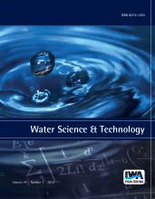
WATER SCIENCE AND TECHNOLOGY
Exploring the forefront of water science and technology.WATER SCIENCE AND TECHNOLOGY, published by IWA PUBLISHING, is a leading academic journal dedicated to advancing the field of water science and technology. With a rich history dating back to 1970, the journal provides a platform for innovative research and technological advancements, catering to the vital challenges faced within the realms of environmental engineering and water resource management. As evidenced by its strong ranking in Scopus, where it holds a position of #86 in Water Science and Technology and #77 in Environmental Engineering, the journal exemplifies significant scholarly contributions, reflected in its Q2 quartile status in both categories as of 2023. Although not an open access journal, WATER SCIENCE AND TECHNOLOGY ensures that its articles are widely available to researchers, professionals, and students passionate about sustainable water solutions. With a continued commitment to excellence, this journal plays a crucial role in shaping the discourse surrounding water quality, conservation, and technology innovation, making it an essential resource for all stakeholders in this critical field.
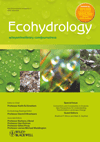
Ecohydrology
Bridging Ecology and Hydrology for a Sustainable FutureEcohydrology is a prestigious academic journal published by WILEY that focuses on the interplay between ecological and hydrological systems. With a robust ISSN of 1936-0584 and E-ISSN 1936-0592, it has established itself as a leading source in its field since its inception in 2009. Positioned in the top quartile (Q1) of various categories, including Aquatic Science, Earth-Surface Processes, and Ecology, the journal leverages its high impact factor to attract significant scholarly contributions. The recent rankings in Scopus place Ecohydrology among the top-tier journals, with notable percentile standings—79th in Ecology, Evolution, Behavior and Systematics, and 77th in both Aquatic Science and Environmental Science. Aimed at researchers, professionals, and students, the journal provides a vital platform for disseminating new insights and methodologies that address pressing environmental challenges. Despite not being an open-access journal, Ecohydrology offers a wealth of knowledge that is crucial for advancing our understanding of ecosystem dynamics and sustainable water resource management.

Hydrologie und Wasserbewirtschaftung
Advancing water science for a sustainable future.Hydrologie und Wasserbewirtschaftung, published by the BUNDESANSTALT GEWASSERKUNDE-BFG, stands as a vital open access journal in the field of hydrology and water management since its inception in 1999. Based in Germany, this journal aims to disseminate high-quality research related to water resources, environmental sustainability, and innovative management strategies. Though it has a Q4 ranking in Water Science and Technology for 2023, and holds a Scopus rank of 113 out of 225, the journal provides an essential platform for researchers, professionals, and students interested in advancing their understanding of water science. With coverage spanning from 1999 to 2018 and a seamless move to an open access model, Hydrologie und Wasserbewirtschaftung remains committed to contributing to the ongoing dialogue around critical water issues. Researchers looking to publish their findings or stay abreast of developments in water science will find this journal indispensable.
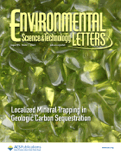
Environmental Science & Technology Letters
Advancing knowledge for a sustainable future.Environmental Science & Technology Letters, published by the American Chemical Society, stands as a premier journal in the realm of environmental science and technology, focusing on pivotal studies that address pressing environmental challenges. With an impressive Q1 ranking in multiple categories including Ecology, Environmental Chemistry, and Pollution, this journal maintains a position of excellence within its field, achieving Scopus ranks that place it in the top percentile of Environmental Science disciplines. Although not open access, Environmental Science & Technology Letters offers vital insights and cutting-edge research that contribute significantly to the understanding and management of environmental issues. The journal’s objectives include disseminating ground-breaking findings and promoting discussions that lead to sustainable solutions. With convergence from 2013 to 2024, it continues to serve as an essential resource for researchers, professionals, and students committed to advancing knowledge and innovation in environmental science.
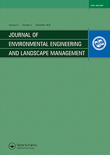
Journal of Environmental Engineering and Landscape Management
Empowering Research for Environmental ExcellenceJournal of Environmental Engineering and Landscape Management, published by VILNIUS GEDIMINAS TECH UNIV, serves as a pivotal platform for disseminating innovative research in the fields of environmental engineering and landscape management. With an Open Access policy since 2018, this journal fosters global knowledge exchange and accessibility, enhancing collaboration among researchers, professionals, and students alike. The journal, indexed under ISSN 1648-6897 and E-ISSN 1822-4199, features a diverse range of topics covering environmental engineering, management policies, and conservation strategies, thus contributing to sustainable development practices. As of 2023, it holds a Q3 quartile ranking across multiple categories, including Environmental Engineering and Nature and Landscape Conservation, demonstrating its commitment to excellence amidst competitive academic fields. The journal spans from 2004 to 2024, steadily solidifying its influence and relevance in shaping environmental discourse and practices. Join a vibrant community of scholars dedicated to addressing pressing environmental challenges through this distinguished publication.
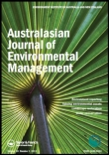
Australasian Journal of Environmental Management
Shaping the future of environmental policy and practice.The Australasian Journal of Environmental Management is a highly regarded publication in the field of environmental studies, published by Taylor & Francis Ltd. With an ISSN of 1448-6563 and an E-ISSN of 2159-5356, this journal serves as a pivotal platform for disseminating innovative research and insights pertaining to the management of environmental resources across Australia and broader geographical contexts. The journal has achieved impressive rankings, including a Q2 classification in Geography, Planning and Development and a Q3 in Management, Monitoring, Policy and Law for 2023, highlighting its relevance and impact within the academic community. Researchers and professionals are encouraged to contribute to its mission of advancing knowledge and practices in sustainable environmental management. With a publication history spanning from 1996 to 2024, the journal remains committed to fostering interdisciplinary collaboration and critical discourse on environmental challenges. While access options may vary, the significance of this journal as a resource for students and practitioners alike cannot be overstated, as it shapes contemporary perspectives on environmental policy and management.

Rocznik Ochrona Srodowiska
Exploring Innovative Solutions for Environmental ChallengesRocznik Ochrona Srodowiska, published by the Middle Pomeranian Scientific Society for Environmental Protection, is an esteemed journal dedicated to advancing the field of environmental science in Poland and beyond. With an ISSN of 1506-218X, this peer-reviewed journal has established itself as a vital resource since its inception in 2007, addressing various environmental issues and promoting sustainable practices. Currently holding a Q3 category ranking in the Environmental Science (miscellaneous) field for 2023, it places itself in the 23rd percentile of Scopus rankings, reflecting a growing influence in the broader environmental research community. While the journal is not open access, it serves as an important conduit for researchers, professionals, and students to disseminate their findings and contribute to the interdisciplinary dialogue aimed at tackling pressing environmental challenges. With a commitment to rigorous research and practical applications, Rocznik Ochrona Srodowiska remains an essential platform for fostering innovation and collaboration in environmental studies.

ENVIRONMENTAL ENGINEERING SCIENCE
Driving impactful discoveries in environmental chemistry.ENVIRONMENTAL ENGINEERING SCIENCE is a leading journal published by MARY ANN LIEBERT, INC that provides a platform for pioneering research in the fields of environmental chemistry, pollution control, and waste management. With an ISSN of 1092-8758 and an E-ISSN of 1557-9018, this peer-reviewed journal aims to disseminate high-quality scientific studies that address critical environmental challenges. As evidenced by its 2023 category quartile rankings, it holds a notable position at Q3 in Environmental Chemistry and Pollution and Q2 in Waste Management and Disposal, highlighting its relevance and impact in these domains. Spanning over two decades from 1997 to 2024, the journal is dedicated to fostering innovations and promoting rigorous scholarship that can contribute significantly to sustainable environmental practices globally. Authors and researchers are encouraged to engage with this essential resource, which offers Open Access options to enhance the visibility and reach of their work. For those interested in advancing their understanding and practice within the environmental sciences, ENVIRONMENTAL ENGINEERING SCIENCE is an indispensable journal to consider.